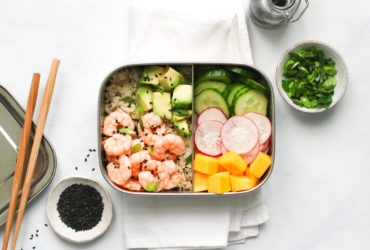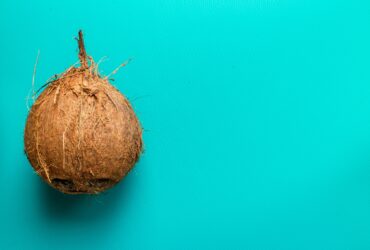Got a pumpkin or two lying around this autumn?
If you’ve previously been tossing away your triangle-eyed friend once the festivities are over, then you may be missing out on a highly nutritious seasonal vegetable that can add real value to your diet. Eating more pumpkin will benefit you in a number of ways, which is why we’ve pulled together 5 impressive reasons to make the most out of this seasons wonder food.
1. To fight colds and infections
The bright orange hue that comes with pumpkin is from a special phytochemical called beta-carotene. Beta-carotene turns into Vitamin A within the body and plays a key role in supporting a healthy immune system 1.
2. Sharp vision
Eyesight diminishes with age, but fortunately by fuelling our body with the right nutrients we can lower the risk of sight loss. Pumpkin’s rich content of vitamin A supports healthy vision, but it’s also rich in plant compounds including lutein and zeaxanthin which are associated with a reduced risk of age-related macular degeneration and cataracts 2.
3. Weight loss
Pumpkin has a similar consistency to starchy carbohydrates such as potato. This means it can make a tasty and satisfying alternative to sweet potato, yet comes with as few as 26 calories per 100g.
Have a go at switching spaghetti for spiralized pumpkin spaghetti, or your mash potato for a pumpkin mash, which can save calories without compromising on flavour.
4. Skin Glow
Pumpkin’s rich source of vitamin A means that it is the perfect vegetable for glowing skin. Vitamin A is a key nutrient required for supporting the daily replacement of skin cells, and is critical for the formation of healthy skin. Its precursor beta-carotene is an antioxidant found in abundance in pumpkin and has been shown to play a role in protecting skins cells from sun damage 3, which is critical for the prevention of ageing skin.
5. Heart Health
It’s not just pumpkin flesh which is highly nutritious, pumpkin seeds are also a top source of magnesium, fibre and healthy polyunsaturated fats. All of these components play a role in maintaining healthy blood pressure 4 and supporting a healthy heart.
References
- https://www.ncbi.nlm.nih.gov/pubmed/27315229
- https://www.ncbi.nlm.nih.gov/pmc/articles/PMC3021198/#CR28
- https://academic.oup.com/ajcn/article/96/5/1179S/4577133
- https://www.ncbi.nlm.nih.gov/pubmed/21545273
About Lily
Lily is a London Nutritionist who graduated from Newcastle University with a BSc (Hons) degree in Food and Human Nutrition (AfN accredited) where she was awarded with the Sage Faculty for Excellence Scholarship on an annual basis. She then went on to complete a 2 year post graduate Diploma in Nutritional Therapy and is currently working towards her MSc in Nutritional Medicine (AfN accredited) at the University of Surrey. Lily’s extensive knowledge of the science of food and health, enables her to regularly write for The Times, The Telegraph, The Daily Mail, The Independent, Women’s Health and Cosmopolitan.
Her frequent TV appearances include ITV’s This Morning with Holly Willoughby and Phillip Schofield, and ITV’s prime time series Save Money: Lose Weight with Dr Ranj Singh. Lily’s passion is to simplify the science around nutrition, to provide health hacks and smarter eating strategies to empower people to enjoy a healthy and successful lifestyle. Her specialities lie in workplace wellness, implementing nutrition focused wellbeing programmes within corporate organisations across the UK.
Lily also sees individual clients from her clinic in Chelsea and a private medical practice based in Notting Hill.



